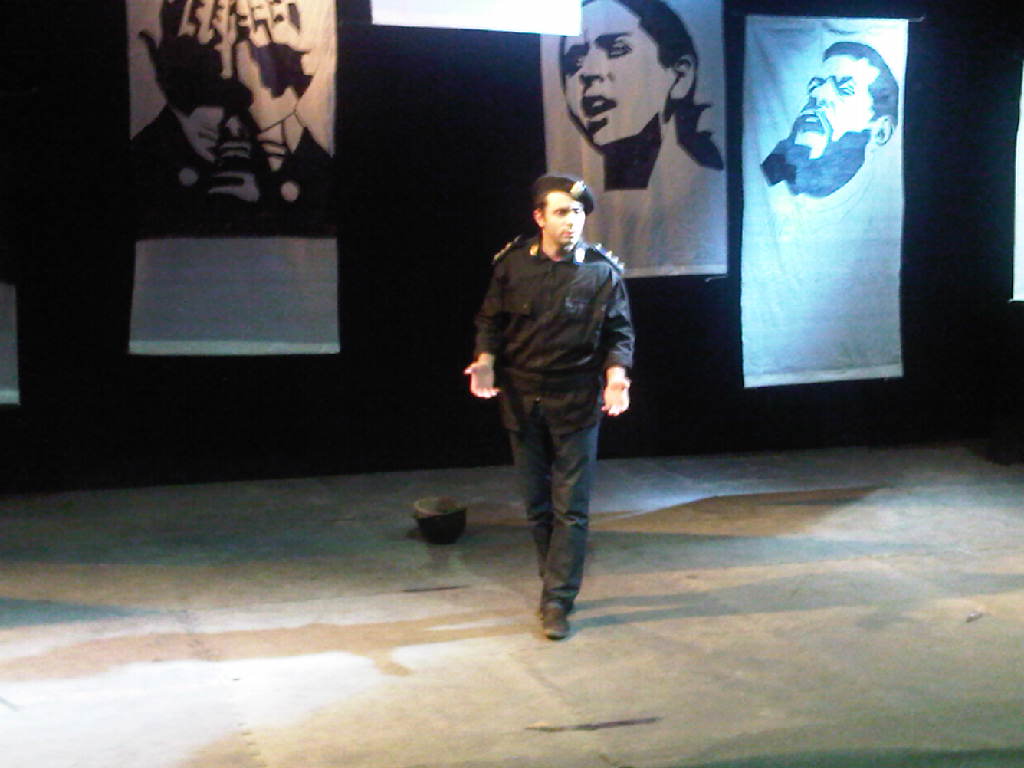Last week, as part of our Alf Leila We Leila Ramadan storytelling series, we brought you the tale of the barber's sixth brother, Schacabac, whose good humor (and desperation) brought him wealth and friendship. This week, we provide a foil to Schacabac, al-Naschar, a greedy and daydreaming glass merchant whose wishes for wealth and beauty might lead to his demise. Al-Naschar also happens to be Schacabac's brother. His tale, the first part of which is here retold by Al Masry Al Youm reporter John Ehab, is an example of fortunes easily gained and just as easily lost, trusts betrayed, and dreams fulfilled (and then regretted).
Like his brothers, al-Naschar has a small inheritance, but wants much more.
It was quite ambitious for al-Naschar to dream of having a country house, horses, slaves, and eventually the chance to ask for the hand of the vizier’s daughter in marriage. Al-Naschar was a beggar until the day his father died and he inherited 100 dinars, his share of the dead man’s fortune which was divided equally among the seven brothers.
His dreams are so profound, they can be heard by the neighbors.
Sitting in the small shop he purchased with the hundred dinars, in front of a basket of glassware, al-Naschar would voice his dreams so loudly that his neighbor, the tailor, could hear. His dreams included leaving his work as a glass seller, and becoming a trader of pearls and diamonds. He would travel further in his dreams to his wedding feast, with a space for musicians and dancers, and the 3,000 gold pieces he would pay the vizier for his daughter’s beauty and wit.
Al-Naschar would soon come to regret his elaborate fantasies and the pantomimes they inspired.
One day in his imaginings, the glass seller entertained the possibility of the vizier refusing his generous offer. He fantasized about how madly he would react, grabbing the vizier by the beard and locking him up in his own country house. Later, the captive’s daughter and her mother would come to beg al-Naschar to release the vizier. Al-Naschar would sternly refuse their plea, instead violently slapping and kicking the princess of his dreams. At this very part his dream came to a sudden halt; he discovered that he had actually kicked the basket of glassware, shattering all his wealth.
The tailor began to laugh as al-Naschar wept dramatically, lamenting his folly. On her mule, a lady of importance passed by the sobbing merchant and inquired. An attendant replied, “He lost this basket of glass, which was all his treasure.” At once, the lady asked the attendant to compensate al-Naschar with whatever she could afford, which turned out to be 500 pieces of gold.
Al-Naschar would soon be visited by another woman, this time an old lady in tattered clothing who asks for water, and refuses charity.
The lucky trader took the money home, and while thinking deeply about what he could do with this new wealth, he was interrupted by an old lady, who was knocking on his door, calling, “My son, I need to wash and get ready for the prayer time.” Letting her in, al-Naschar gave her a vessel of water and returned directly to his dreams, counting the pieces of gold that made his ambitions seem suddenly within reach. He took his treasure and put it in a long purse on his belt just as the old lady finished her prayer and prostrated herself twice before the absentminded man.
Al-Naschar offered her two pieces of gold. The old lady acted as if she were insulted and replied, “Oh, you don’t know the lady I serve. She’s so rich, she provides what I need.” Curious, al-Naschar began to inquire about her rich mistress. The old lady replied at once, “I can even take you to see her. She might even be interested in marrying you.”
Al-Naschar, with the naivety of one prone to believe in their daydreams, follows the old woman to her mistress's house, delighted at the prospect of gaining both a fortune and a beautiful wife, and all in a day's work.
A Greek slave-girl opened the door to a well-furnished house and, moments later, the lady appeared. She was more gorgeous than he had dreamed she would be. She invited him to sit down and talk. After some time had passed, she excused herself and left the room. No sooner had she left than a large, dark-skinned man entered the room and attacked al-Naschar, exclaiming, "What do you think you're doing here!"
After a short fight, al-Naschar was thrown on the ground, wounded by the man’s saber and robbed of his wealth. The Greek slave entered the room and rubbed salt on his wounds to see if he was still alive. Though in tremendous pain, al-Naschar barely let out a breath, so the two servants threw him into the cellar, thinking him dead.
Late that night, the sting of the salt on al-Naschar’s wounds revived him from a deep sleep. He found the cellar unlocked and escaped quickly to the home of his brother, the barber, where he began to devise a plot of revenge…
The story of al-Naschar's daydreams and salted wounds is far from over; next week Al Masry Al Youm will run Ehab's retelling of the second half of "The Barber's Fifth Brother," undoubtedly a story of revenge and vindication and no wounds to rub salt into.




